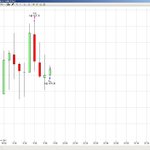Jaydee
Established member
- Messages
- 556
- Likes
- 107
Let me explain it like this:
A sniper tells you that they only pull the trigger if they are certain that the bullet they are firing is going to kill their target.
Do you need to ask, what about if you are firing from a different distance?
Do you need to ask, what about in different weather conditions?
Do you need to ask, what if the target is moving?
The sniper repeats, they only pull the trigger if they are certain the bullet they are firing is going to kill their target.
In the same way, I am saying that stops are a function of proficiency.
Only proficiency?
So you are telling me that you would have a 5 tick stop on an ES trade that you planned on running over a period of days rather than intraday?

